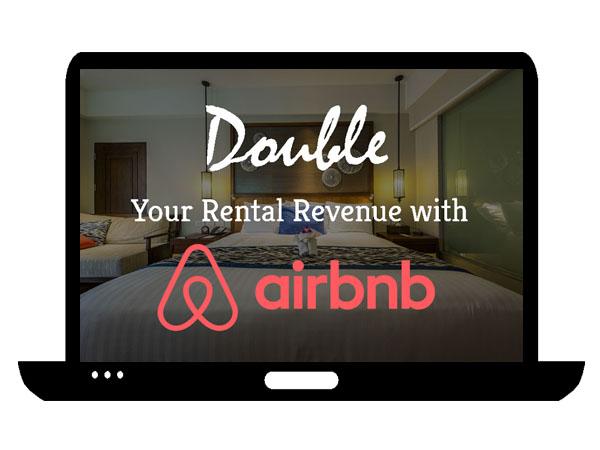
People with no imagination love to tell you that it takes money to make money. If that were true, explain to me how plumbers earn $50-150/hour.
It doesn’t take money to make money — it takes initiative, effort, and sometimes a little creativity.
Which is not to say that having money doesn’t help. It certainly does, and as a real estate investor, you need plenty of cash.
But you don’t need to be born with a silver spoon and a trust fund to get rich. You just need a high savings rate and perhaps a real estate side hustle or two to earn more money for investing.
19 Real Estate Side Hustle Ideas
As you research ways to earn money from real estate side jobs, consider the following gig ideas. From working as a real estate agent part-time to becoming a landlord to Airbnb arbitrage and beyond, you have plenty of options for real estate side hustles.
1. Become a Real Estate Agent
Take a course, pass a test, join a real estate brokerage. You can start earning money quickly as a part-time real estate agent.
Just bear in mind that the overwhelming majority of the work of being a realtor isn’t showing houses. It’s marketing.
Building a name for yourself and finding clients is hard work, given how saturated most markets are with real estate agents. And while part-time agents can earn strong commissions on just a few hours’ listing-related work, that ignores the hundreds of hours invested in marketing.
Which brings us back to the course you take, which teaches you nothing about marketing or the skills required to be a realtor. It teaches you the laws you need to follow, which won’t actually help you in your day-to-day work. Plan on learning the skills required to succeed as a real estate agent from your brokerage.
A real estate agent part-time may or may not make much money, but if you like the work, you can always ditch your day job to become a full-time agent.
2. Become a Notary
It takes far less skill and education to serve as a notary.
Notaries do many types of work, but as a real estate side hustle, you’re largely looking at becoming a settlement agent. You present real estate transaction paperwork to buyers and sellers, verify their identities, and notarize the documents. Mortgage lenders also need notaries to conduct refinance settlements.
While some settlements take place at the title company, many take place off-site. That gets you out and about, driving to wherever the parties decide to hold the settlement. That may or may not appeal to you, depending on how much you like driving and leaving home.
However, lenders and title companies increasingly accept virtually notarized documents. If you prefer working from home, look into earning extra income as a virtual notary. It’s one of many ways that technology is disrupting real estate.
As a final thought, your volume of work (and earnings) depend on your ability to network with settlement agencies and have them hire you for closings. If you go this route, network early and often to build a roster of clients.
3. Add an ADU to Your Home
One of the many ways to house hack involves adding an accessory dwelling unit (ADU) to your home.
This separate living space includes a full bathroom, kitchen (or kitchenette), and its own entrance. You can rent ADUs to either long-term tenants or short-term renters on Airbnb and VRBO.
The rent ideally covers most or all of your housing payment, scoring you free housing.
You don’t have to worry about networking and potential client lists, or building a real estate business from the ground up. You just add a steady stream of income from your home.
4. Rent Your Home on Airbnb
Everyone and their mother knows this real estate side hustle. We won’t dwell on it, but consider a few ideas that may not have occurred to you.
You could rent out a room, a suite of rooms, or your entire home when you’re not using it. For example, if you travel frequently, or spend a lot of time crashing with a significant other or your parents, you could list your home for rent on Airbnb. Or if you’re a snowbird or otherwise spend a lot of time elsewhere, you could rent your home while you’re not using it.
No construction or alternations to your property necessary. You just collect some supplemental income while your home would have otherwise sat vacant.
By the way, you don’t need to own a home to do this. A friend of mine rented her spare bedroom/bathroom suite in an apartment she rented. She found that if she rented it for two long weekends each month, it covered most of her rent payment.
For that matter, you don’t even need to live in the rental unit to rent it on Airbnb.
Related Article Read: Best Ways To Find Pre-Foreclosure Listings.
Related Article Read: What is driving for dollars.
5. Rental Arbitrage
Rental arbitrage involves signing a long-term lease agreement on a unit, then furnishing it and renting it out on Airbnb or VRBO. Or better yet, to an extended stay renter such as a travel nurse or business traveler who needs a furnished home for a few months.
You take advantage of the difference between the cost of a long-term rental and the premium paid for an Airbnb or extended stay accommodation. And you earn rental income each month, without having to actually buy a rental property.
It’s a great way to get started in real estate investing with little cash.
6. Buy Rental Properties
Or, of course, you could buy your first rental property. Or second, or tenth, and keep growing your real estate portfolio and passive income streams.
Not everyone wants to become a landlord, of course. But for those who don’t mind a more hands-on approach to their investments, rental properties offer some great benefits.
There’s the rental cash flow, of course. You can predict the average monthly income in advance using a rental cash flow calculator. That means you never have to buy a bad investment again. Plus, your cash flow only gets better with time, as rents rise but your mortgage payment stays fixed.
Properties also appreciate in value over time (usually). Your renters pay off your mortgage for you, even as your property goes up in value.
Landlords also get excellent rental property tax deductions. You can deduct every conceivable expense, from travel to a home office to property management fees and repairs. Plus you can deduct for paper expenses like depreciation, showing a loss on your taxes even as you collect cash flow in real life.
Want all those benefits, without the headaches of becoming a landlord? Invest in passive real estate syndications. And if you don’t feel like going it alone, we pool funds to invest in a new syndication in our real estate investing club every month.
7. Manage Other People’s Properties
If you like the idea of buying rental properties but aren’t ready to buy one yourself yet, you can always become a property manager as a real estate side hustle.
You learn the ropes of property management and the local rental market. And you get paid for your trouble.
It’ll make you a better investor when the time comes for you to buy your first rental property.
8. Real Estate Wholesaling
Property management isn’t the only skill set that will help you become a better rental investor.
Instead of keeping deals for themselves, real estate wholesalers find a good deal on a property, then flip the contract to another investor. For a margin, of course.
Say you find a property worth $200,000, and you put it under contract for $170,000. You turn around and sell the contract to another real estate investor for $175,000. You earn a $5,000 profit, and they still get the property at a $25,000 discount.
Real estate wholesaling is a great way to get started and build up some investing capital. Just make sure you don’t get stuck holding a contract you can’t sell, and lose your earnest money deposit.
9. Bird Dogging
Where do real estate wholesalers and investors find good deals on properties?
They could try driving for dollars, or reach out to distressed sellers. Or they could pay bird dogs to refer deals their way.
A bird dog is someone who alerts investors to good potential deals in their local area, in exchange for a referral fee. They could be bartenders or barbers or baristas — someone in the loop on the local gossip. They know who’s divorcing, who’s struggling financially, who’s about to enter foreclosure. Or they might learn of an abandoned house before anyone else hears about it.
When they catch wind of a potentially motivated seller, they pass the information along. The real estate investor connects with the seller, and then pays the bird dog a fee for their trouble.
If you know everything going on in your neighborhood, consider networking with a few real estate investors and offering your service as a bird dog. It’s one more way to make money in real estate.
10. Flip Houses
Again, you know how flipping houses works, so we won’t belabor the point. You buy a fixer-upper, renovate it, and sell it for a profit.
For that matter, you could refinance it and keep it as a rental property. You may even be able to pull your entire down payment back out of the property when you refinance. Read up on the BRRRR method of real estate investing for more details.
Like wholesaling or any other real estate side hustle on this list, flipping houses helps you stack up some cash for investing.
11. Flip Land
While flipping houses can be fun, it’s also a lot of work. Even if you never plan to pick up a hammer, hiring and negotiating with contractors is no mean feat. All too often, they go over-budget or blow your timeline, and that says nothing of the risk of sub-par work quality.
Raw land doesn’t require any repairs or renovations. You simply buy it at a discount and sell it to someone who can actually use it.
That doesn’t mean it’s an entirely passive source of income though. You still need to understand the real estate markets where you buy and sell land parcels, and learn how to market them. Read up on how one employee replaced his income in 18 months with land investing, and check out R.E.Tipster’s excellent land investing course if you want to learn how to do it yourself.
12. Buy Tax Liens
Different states enforce property taxes in different ways. Some auction off the property itself if the owner fails to pay their property taxes (tax sale states), while others simply auction off the lien (tax lien states).
In the latter, you buy the property tax debt, secured with a lien against the property. You can charge interest at a state-mandated rate, and in some cases you can foreclose on the lien.
It can offer a passive way to invest in real estate. You buy liens against properties with plenty of equity, and either threaten to foreclose if they don’t pay or you can just wait out the owner to sell or refinance the property. At that time, they’ll have to pay you off in full, plus interest.
13. Lend Private Notes
Another way to invest in secured debts is to lend money against investment properties, often to other real estate investors.
You can lend money to investors you know personally, if you know any you like and trust. I’ve lent money to real estate investors at 10%, and years later they pay me interest like clockwork. Or you can invest in loans through a platform like Groundfloor or Concreit.
Groundfloor lets you invest as little as $10 toward specific hard money loans. These are short-term purchase-rehab loans, designed for flippers or investors following the BRRRR method. When the borrower repays the loan after selling or refinancing, you get your money back plus interest. I myself invest with Groundfloor, and have found that they consistently average around 10% annual returns.
Alternatively, you can invest in Concreit, a pooled fund owning many of these short-term hard money loans. You can pull your money out at any time, but expect to earn closer to 5.5%–6.5% interest in exchange for that liquidity.
14. Launch a Real Estate-Related Website
What do you think SparkRental is?
Well, not a side hustle. It’s definitely a full-time job for our team members, myself included. But it is a real estate website.
There are many ways to monetize a website, from affiliate referrals to digital product sales to memberships to advertising to drop shipping and more. We use many of these strategies ourselves. In fact, affiliate links as we compared investment property lenders helped create our initial revenue streams to get us off the ground, back in 2016-2017.
If you like writing or producing content and enjoy online marketing, consider starting an online real estate company.
15. Freelance Writing About Real Estate
I started freelance writing about real estate and personal finance in the earliest days of SparkRental, before it turned a profit. I did that to keep the lights on and to keep my wife Katie from divorcing me. But I found I enjoyed it, and still do a little freelance writing to this day.
Of course, it helps to have firsthand real estate expertise. But it’s not strictly mandatory, as many writers simply research their topics rather than speaking from personal experience.
16. Real Estate Bookkeeping
Real estate bookkeeping can get tedious, with many expenses and income streams to track. (Unless you use an automated rental property accounting software like ours. Then it’s easy.)
Many landlords need help with their bookkeeping and accounting. If you have a background in it, you can offer your services to property owners as a real estate side job.
17. Real Estate Photography
Professional real estate photographers know how to present a property in its best light, literally and figuratively. From the right shot angles to the best lighting and beyond, they make houses look their best.
If you love photography, you can quickly learn the industry tricks and hire out your services. You could also learn how to create virtual tours to round out your skill set.
There’s also a growing marketfor drone photography in real estate, especially for higher-end properties. You can charge a premium for drone photography, since everyone has a basic camera but few people own or know how to capture professional-grade drone photos and videos.
18. Real Estate Social Media Marketing
Know your way around social media? Offer to help people in the real estate industry with social media marketing.
Many of them certainly need it. We’d be lost without Tara Scott managing our social media campaigns.
The better you can document your impact for your clients, the better. If your clients earn $1.25 for every dollar they spend on you, you’ll have limitless clients.
19. Become a Real Estate VA
Plenty of real estate professionals need help with day-to-day tasks that you could help them with as a virtual assistant (VA).
From answering emails to scheduling appointments and beyond, you can do these tasks from the comfort of your couch. Don’t expect a high hourly rate for this real estate side job, but it also doesn’t require much in the way of special skills, knowledge, or training. You don’t need a real estate license, don’t need to get hired by a real estate broker, and earn a steady hourly wage rather than unpredictable commissions as a part-time real estate agent.
Alternative: Passive Real Estate Investing
If you want to make extra money on the side but don’t want to work for it, put your money to work for you.
Passive real estate investments include both real estate crowdfunding and real estate syndications. You can get started with real estate crowdfunding with $10, making it accessible for everyone. Check out Fundrise, Groundfloor, Ark7, Arrived, and Concreit as easy, reputable, low-cost options. I’ve invested my own personal money in each of them.
Want to play a little bigger? Invest in real estate syndications targeting 15-30% annualized returns. You become a fractional owner in commercial properties such as apartment complexes or self-storage facilities, entitled to rental cash flow, profits, and real estate tax benefits. And if the $50–100K minimum investment gives you pause (as it should), check out our real estate investment club to pool your money alongside other investors to access these for far less.
Final Thoughts
Real estate offers countless ways to earn money, from the lending side to titlework to photography to investing to real estate sales. No matter what your passions or skill set, there are real estate side jobs that suit you.
Start by simply networking with as many people as you possibly can in the industry. Ask about the work people do, not just the broad strokes but what their tasks look like on a random day. Ask about the people they work with, and what they do. Keep probing until you find a real estate side hustle that fits you like a glove.
And who knows? You might just find that your side hustle evolves into a full-time real estate career if you love the work.♦
How do you plan to make money with real estate in your spare time? What real estate side hustles appeal to you most?
Related Article Read: Everything you need to know about due diligence in real estate.
Related Article Read: Should I Transfer the Title on My Rental Property to an LLC?
More Real Estate Investing Reads:
About the Author

G. Brian Davis is a real estate investor and cofounder of SparkRental who spends 10 months of the year in South America. His mission: to help 5,000 people reach financial independence with passive income from real estate. If you want to be one of them, join Brian and Deni for a free class on How to Earn 15-30% on Fractional Real Estate Investments.




























My drone photography in real estate is a huge hit in my region. Getting to the point where I’m considering quitting my day job. Goes to show how real estate side hustles (or any side hustle) can evolve and become a lifestyle business.
So glad to hear it Mr. Placido, and great point about side gigs becoming lifestyle businesses!
Not all real estate side hustles pay reliable income, but it’s still about as sure options get for building wealth. Forget winning the lottery and focus on growing your income while learning how to invest.
Amen Leslie!
Adding an ADU to our home has been a side hustle idea I’ve been considering for a while. My wife is less enthusiastic though, ongoing conversation.
I hear you Ken!
This article gives me an idea of possible emerging innovative side hustles in the real estate industry, such as being a real estate AI tool operator, a real estate data collector, or exploring the possibilities of applying the Internet of Things in real estate investing. Take this with a grain of salt.
Love it Alex!
My ideal real estate side hustle is becoming a social media marketer for the industry. Sales come naturally to me, and I enjoy boosting online presence and generating results through effective campaigns. The potential for limitless clients based on proven impact and return on investment makes it truly enticing!
Love it MM!